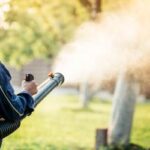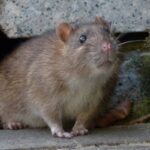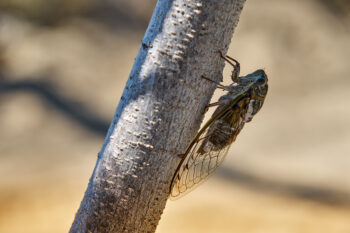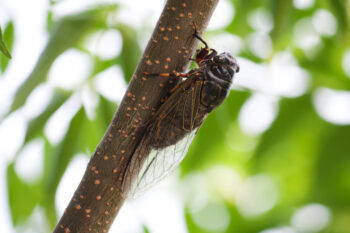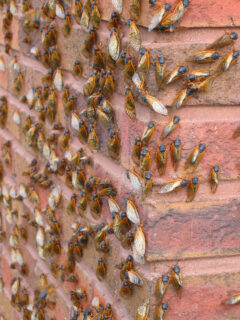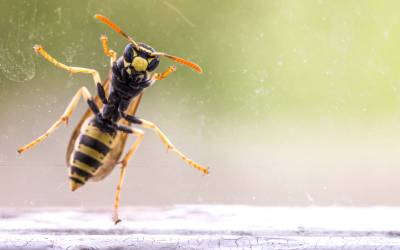
Unfortunately, here in North Carolina, the sunny weather and warmer temperatures bring with them a less welcome guest: stinging insects. These buzzing visitors are the last thing you want entering your yard and causing unwanted disturbances. To prevent an infestation, local homeowners should know about the different stinging in our area and how to prevent them:
Bald-faced Hornet
The bald-faced hornet, known for its distinct black-and-white markings, builds paper nests in trees, bushes, or structures around your yard. They can become aggressive if disturbed.
Bumblebee
Bumblebees are beneficial pollinators but can establish nests in various areas, including abandoned rodent burrows or under porches. Although they are usually not hostile, it is best to learn how to live with them harmoniously. They can sting multiple times when provoked.
Carpenter Bee
Carpenter bees are notorious for drilling holes in wooden structures, causing damage over time. They prefer untreated or weathered wood, such as decks, fences, or eaves. They rarely sting but can be territorial and aggressive.
Cicada Killer Wasp
The cicada killer wasp is a big, solitary wasp that preys on cicadas. They dig burrows in the ground, creating noticeable mounds. Understanding their behavior and nesting habits is crucial for wasp prevention. They can sting but are usually only aggressive if handled or stepped on.
European Hornet
European hornets are invasive pests known for their large size and potent sting. They construct paper nests in voids, trees, or wall cavities. Taking prompt action is necessary to avoid infestations.
Honeybee
Honeybees are essential for pollination but can cause trouble when they build hives in unwanted places like walls or chimneys. It is crucial to handle honeybee situations carefully and responsibly.
Mud Dauber
Mud daubers are solitary insects that build nests from mud, often found on walls, ceilings, or under eaves. Although they are generally not aggressive, it is essential to prevent their presence to maintain a harmonious environment.
Paper Wasp
Paper wasps build umbrella-shaped nests in sheltered areas like eaves, porches, or attics. Even if they are not very dangerous, it is essential to take wasp prevention steps to reduce their numbers.
Velvet Ant Wasp
Velvet ants, known as “cow killers,” are solitary wasps. The females lack wings and can deliver a painful sting. Understanding their behavior and preferences can help prevent encounters with these unique stinging insects.
Yellowjackets
Yellowjackets are stinging insects known for their hostile behavior, and they can cause trouble in outdoor areas. These social wasps usually build their nests in sheltered places such as underground holes, wall gaps, or bushes and trees. Using effective yellowjacket prevention methods can help make a safer space for outdoor events.
Stinging Insect Prevention
Stinging insects like to build their nests in sheltered and protected places, such as under eaves, attics, wall voids, trees, or the ground. It would be best to eliminate any possible nesting places to stop them from building nests in your yard.
- Seal gaps or cracks in your walls, roof, or foundation.
- Trim any overgrown vegetation or branches that touch your house.
- Keep your downspouts and gutters clean and free of debris.
- Cover any openings or vents with mesh or screens.
- Remove old or unused items that could provide shelter or nesting material.
Call a Professional Exterminator
Remember, it is crucial to rely on professional exterminators when dealing with stinging insect infestations. If you require expert insect control or have any concerns, do not hesitate to contact Bug Out for professional stinging insect prevention and control services. Our licensed technicians have the tools and expertise needed to quickly and safely remove a nest from your property and prevent the bees or wasps from coming back.
Stay informed, take preventive action, and enjoy a stinging insect-free home in North Carolina! Give us a call today to get your free quote.

